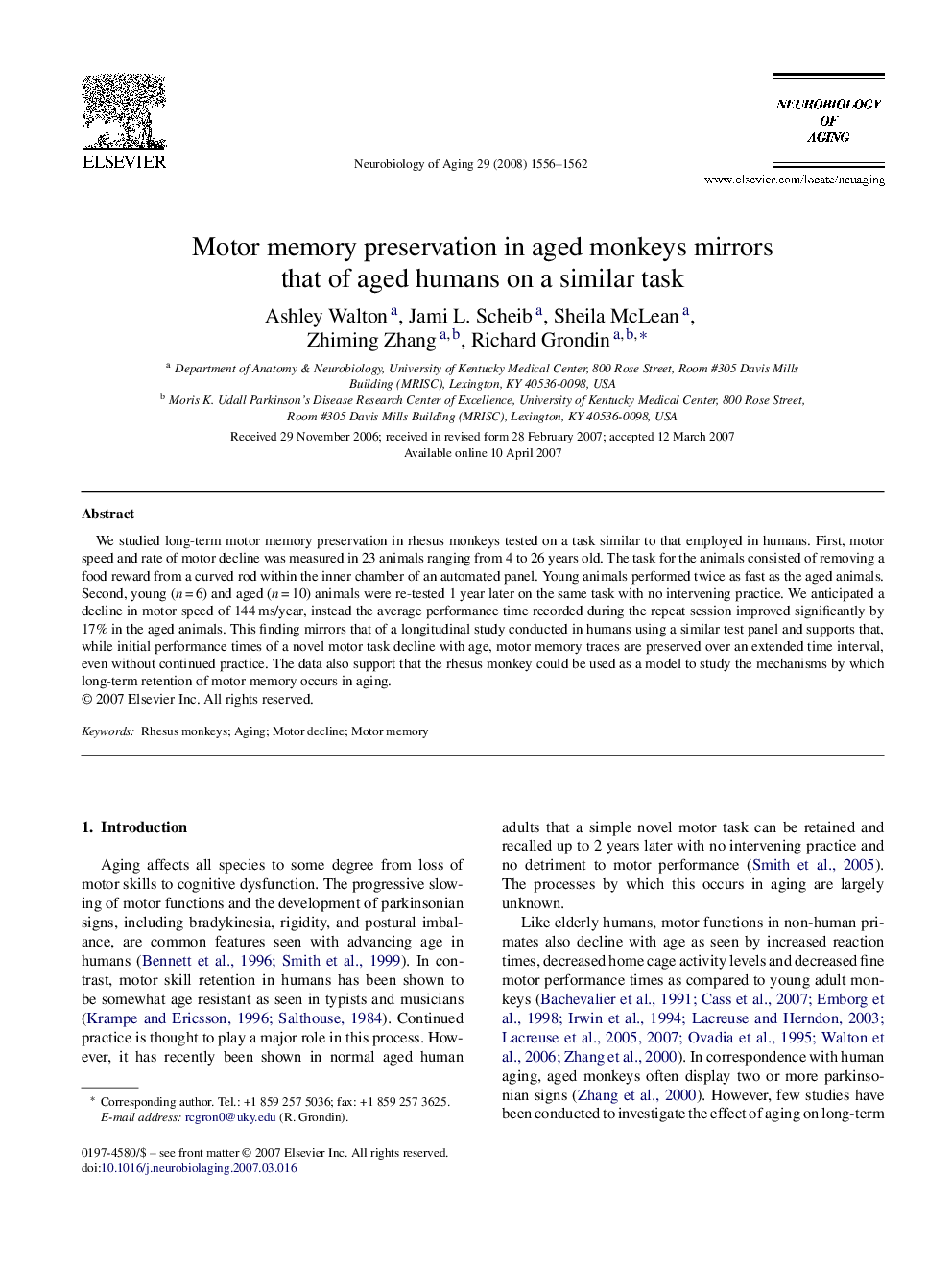| Article ID | Journal | Published Year | Pages | File Type |
|---|---|---|---|---|
| 329509 | Neurobiology of Aging | 2008 | 7 Pages |
We studied long-term motor memory preservation in rhesus monkeys tested on a task similar to that employed in humans. First, motor speed and rate of motor decline was measured in 23 animals ranging from 4 to 26 years old. The task for the animals consisted of removing a food reward from a curved rod within the inner chamber of an automated panel. Young animals performed twice as fast as the aged animals. Second, young (n = 6) and aged (n = 10) animals were re-tested 1 year later on the same task with no intervening practice. We anticipated a decline in motor speed of 144 ms/year, instead the average performance time recorded during the repeat session improved significantly by 17% in the aged animals. This finding mirrors that of a longitudinal study conducted in humans using a similar test panel and supports that, while initial performance times of a novel motor task decline with age, motor memory traces are preserved over an extended time interval, even without continued practice. The data also support that the rhesus monkey could be used as a model to study the mechanisms by which long-term retention of motor memory occurs in aging.
